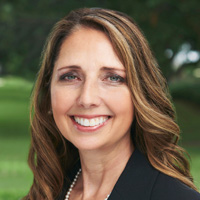Building Wealth Should Be a Family Affair
Working together on your finances isn’t something that comes naturally to a lot of couples. If that sounds like you, take a few tips from a pro on how to forge a future together as a team.

Profit and prosper with the best of Kiplinger's advice on investing, taxes, retirement, personal finance and much more. Delivered daily. Enter your email in the box and click Sign Me Up.
You are now subscribed
Your newsletter sign-up was successful
Want to add more newsletters?

Delivered daily
Kiplinger Today
Profit and prosper with the best of Kiplinger's advice on investing, taxes, retirement, personal finance and much more delivered daily. Smart money moves start here.

Sent five days a week
Kiplinger A Step Ahead
Get practical help to make better financial decisions in your everyday life, from spending to savings on top deals.

Delivered daily
Kiplinger Closing Bell
Get today's biggest financial and investing headlines delivered to your inbox every day the U.S. stock market is open.

Sent twice a week
Kiplinger Adviser Intel
Financial pros across the country share best practices and fresh tactics to preserve and grow your wealth.

Delivered weekly
Kiplinger Tax Tips
Trim your federal and state tax bills with practical tax-planning and tax-cutting strategies.

Sent twice a week
Kiplinger Retirement Tips
Your twice-a-week guide to planning and enjoying a financially secure and richly rewarding retirement

Sent bimonthly.
Kiplinger Adviser Angle
Insights for advisers, wealth managers and other financial professionals.

Sent twice a week
Kiplinger Investing Weekly
Your twice-a-week roundup of promising stocks, funds, companies and industries you should consider, ones you should avoid, and why.

Sent weekly for six weeks
Kiplinger Invest for Retirement
Your step-by-step six-part series on how to invest for retirement, from devising a successful strategy to exactly which investments to choose.
It happens too often.
One spouse takes the lead on all things financial while the other is hands-off. That may seem like a good idea, but it can lead to trouble down the road.
If the financially savvy spouse should pass away, the survivor (usually the wife, but not always) is left in a stressful situation because he or she knows little to nothing about the family accounts or how to access those accounts. Possibly, the surviving spouse never even met the financial professional who handles their investments.
From just $107.88 $24.99 for Kiplinger Personal Finance
Become a smarter, better informed investor. Subscribe from just $107.88 $24.99, plus get up to 4 Special Issues

Sign up for Kiplinger’s Free Newsletters
Profit and prosper with the best of expert advice on investing, taxes, retirement, personal finance and more - straight to your e-mail.
Profit and prosper with the best of expert advice - straight to your e-mail.
At Semmax Financial Group, we believe finances should be a family affair. Both spouses don’t need to be experts in all things money, but they should have a grasp of their general financial situation and take part in any decisions that are made.
If finances have been a one-person show in your household, here’s how to transform that into a family affair:
Create a plan
When it comes to financial goals – or probably any goal for that matter – you can’t just blindly throw darts at a wall and hope everything works out. You need a plan, whether you are saving money for retirement, a new house, a vacation or some other expense that doesn’t fit into the daily budget. Everyone who is affected by the plan should be involved.
Also, I recommend putting that plan in writing because once it’s in writing, it becomes a living thing, not some nebulous notion. Write down your goals, create a timeline for achieving them and develop a roadmap for how you will get there.
Schedule dedicated time to work on things together
Wealth-building doesn’t happen on its own. To make finances a priority, regularly set aside time to work on things together, so it's clear that all parties are dedicated to your financial goals, and one person isn’t pulling all the weight while others are out of the loop.
Assign responsibilities
Household finances come with plenty of working parts. Taxes. Monthly bills. Investments. Although it’s important that everyone is aware of the big picture, you should delegate responsibilities for individual tasks.
Perhaps one person feels more confident handling the taxes. Another person may want to take charge of investments because they love to follow the market. Once again, the key is that everyone is involved, even if an individual carries out the specific assignments.
Make sure both spouses meet with the financial adviser
This is one time when you don’t want to split the duties. Both spouses should attend meetings with the financial adviser. Even if one person has no interest, they still need to be there to understand what’s happening with the family’s money and to get to know the adviser. Why? Because that adviser is who you will call if something happens to your spouse and you encounter a problem with your finances.
Make it fun
Money matters can be drudgery and stress-inducing if you let them be. To ease the tension, inject fun into the process. For example, you can create a rewards system for when you reach certain milestones, such as when you manage to knock off another $1,000 off your credit card debt. Treat yourself to a date night, a spa day, a family picnic. That way, this potentially tedious chore becomes more palatable.
Making finances a family affair ensures that one spouse isn’t left in the dark when the other spouse dies. But that’s not all. Financial planning and related financial chores are less burdensome if more than one person is carrying the load.
Financial decisions also may prove wiser when two people provide input. And the odds that the financial plan will be a success and that the goals will be met are much higher if all parties have buy-in.
Ronnie Blair contributed to this article.
The appearances in Kiplinger were obtained through a PR program. The columnist received assistance from a public relations firm in preparing this piece for submission to Kiplinger.com. Kiplinger was not compensated in any way.
Profit and prosper with the best of Kiplinger's advice on investing, taxes, retirement, personal finance and much more. Delivered daily. Enter your email in the box and click Sign Me Up.

Penny Di Giovanna is a financial advisor with Semmax Financial Group in Winston-Salem, NC. She has earned the CERTIFIED FINANCIAL PLANNER™ professional (CFP®) and Accredited Asset Management Specialist™ (AAMS®) professional designations. Di Giovanna previously worked for 20 years in the real estate industry, handling everything from complex commercial transactions to first-time home purchases.
-
 Nasdaq Leads a Rocky Risk-On Rally: Stock Market Today
Nasdaq Leads a Rocky Risk-On Rally: Stock Market TodayAnother worrying bout of late-session weakness couldn't take down the main equity indexes on Wednesday.
-
 Quiz: Do You Know How to Avoid the "Medigap Trap?"
Quiz: Do You Know How to Avoid the "Medigap Trap?"Quiz Test your basic knowledge of the "Medigap Trap" in our quick quiz.
-
 5 Top Tax-Efficient Mutual Funds for Smarter Investing
5 Top Tax-Efficient Mutual Funds for Smarter InvestingMutual funds are many things, but "tax-friendly" usually isn't one of them. These are the exceptions.
-
 Social Security Break-Even Math Is Helpful, But Don't Let It Dictate When You'll File
Social Security Break-Even Math Is Helpful, But Don't Let It Dictate When You'll FileYour Social Security break-even age tells you how long you'd need to live for delaying to pay off, but shouldn't be the sole basis for deciding when to claim.
-
 I'm an Opportunity Zone Pro: This Is How to Deliver Roth-Like Tax-Free Growth (Without Contribution Limits)
I'm an Opportunity Zone Pro: This Is How to Deliver Roth-Like Tax-Free Growth (Without Contribution Limits)Investors who combine Roth IRAs, the gold standard of tax-free savings, with qualified opportunity funds could enjoy decades of tax-free growth.
-
 One of the Most Powerful Wealth-Building Moves a Woman Can Make: A Midcareer Pivot
One of the Most Powerful Wealth-Building Moves a Woman Can Make: A Midcareer PivotIf it feels like you can't sustain what you're doing for the next 20 years, it's time for an honest look at what's draining you and what energizes you.
-
 I'm a Wealth Adviser Obsessed With Mahjong: Here Are 8 Ways It Can Teach Us How to Manage Our Money
I'm a Wealth Adviser Obsessed With Mahjong: Here Are 8 Ways It Can Teach Us How to Manage Our MoneyThis increasingly popular Chinese game can teach us not only how to help manage our money but also how important it is to connect with other people.
-
 Looking for a Financial Book That Won't Put Your Young Adult to Sleep? This One Makes 'Cents'
Looking for a Financial Book That Won't Put Your Young Adult to Sleep? This One Makes 'Cents'"Wealth Your Way" by Cosmo DeStefano offers a highly accessible guide for young adults and their parents on building wealth through simple, consistent habits.
-
 Global Uncertainty Has Investors Running Scared: This Is How Advisers Can Reassure Them
Global Uncertainty Has Investors Running Scared: This Is How Advisers Can Reassure ThemHow can advisers reassure clients nervous about their plans in an increasingly complex and rapidly changing world? This conversational framework provides the key.
-
 I'm a Real Estate Investing Pro: This Is How to Use 1031 Exchanges to Scale Up Your Real Estate Empire
I'm a Real Estate Investing Pro: This Is How to Use 1031 Exchanges to Scale Up Your Real Estate EmpireSmall rental properties can be excellent investments, but you can use 1031 exchanges to transition to commercial real estate for bigger wealth-building.
-
 Should You Jump on the Roth Conversion Bandwagon? A Financial Adviser Weighs In
Should You Jump on the Roth Conversion Bandwagon? A Financial Adviser Weighs InRoth conversions are all the rage, but what works well for one household can cause financial strain for another. This is what you should consider before moving ahead.
